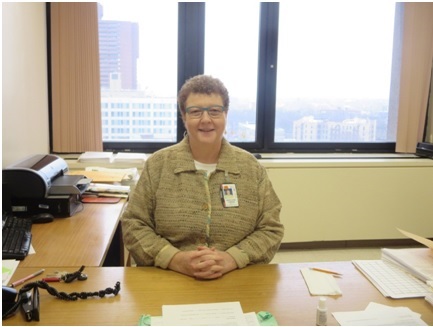
Photo courtesy North Central Bronx Hospital
By DAVID CRUZ
The debate over whether institutionalization of the borough’s mental health population rages fiercely, with state officials seeing it as vestige of a bygone era. In the last few years, the state has closed its institutions, shifting away from housing the mentally ill and seeking different forms of treatment instead.
In the Bronx, opting for alternative mental care for the mentally ill has been a recent trend at North Central Bronx, one that has shown a degree of success. For NCBH, partial hospitalization has been a successful model, though seldom utilized, according to officials. Advocates for NCBH’s Partial Hospitalization Program have since pressed upon the families of the troubled to consider the option over full hospitalization. As it stands, the Bronx leads the state with the most reported cases of mental illness.
“We can provide intensive care to these patients in need at a fraction of the cost of hospitalizing them,” said Dr. Madeline O’Brien, director of the PHP. “Our re-hospitalization rate of patients who complete or graduate this program is also dramatically lower than those who forgo PHP.”
Every weekday, roughly twenty sufferers of bi-polar disorder, anxiety and schizophrenia are picked up in van from their home, and taken to daylong therapy sessions at the hospital on Kossuth Avenue in Norwood. The routine, little do some know, implements a form of stability–treatment while still enjoying the familiarity of home. Inside the hospital, patients grow accustomed to the same faces, another benefit to sufferers who would otherwise be shuffled around, moving from one new doctor to the next, creating instability, according to Dr. O’Brien.
Breakthroughs can happen at any time, with combinations of private and group talk therapy sessions usually serving as tools. Art therapy has also been introduced to patients, allowing their thoughts to flourish on a canvas.
Attendance is seriously stressed at PHP, with administrative often conducting house calls should a patient miss a day. Understanding of medications is also ingrained into patients.
The stays are short-term, just six weeks, culminating with a graduation ceremony where residents earn a certification. The hospital can’t win them all, officials admit. Those who don’t make it are often referred to other behavioral health services.
But many do complete it, like Michelle. A Bronx resident, Michelle suffers from depression and suicidal thoughts. She entered the program as a skeptic, but left with plenty of support.
“The groups allowed me to bond with people who had similar traumatic experiences,” said Michelle. “Also, the staff was wonderful, very attentive to my care and provided support for keeping my medication consistent so I could get better.”
Medicaid and private insurance plans are accepted. Those interested can call (718) 519-2439 to schedule a behavioral assessment screening.




